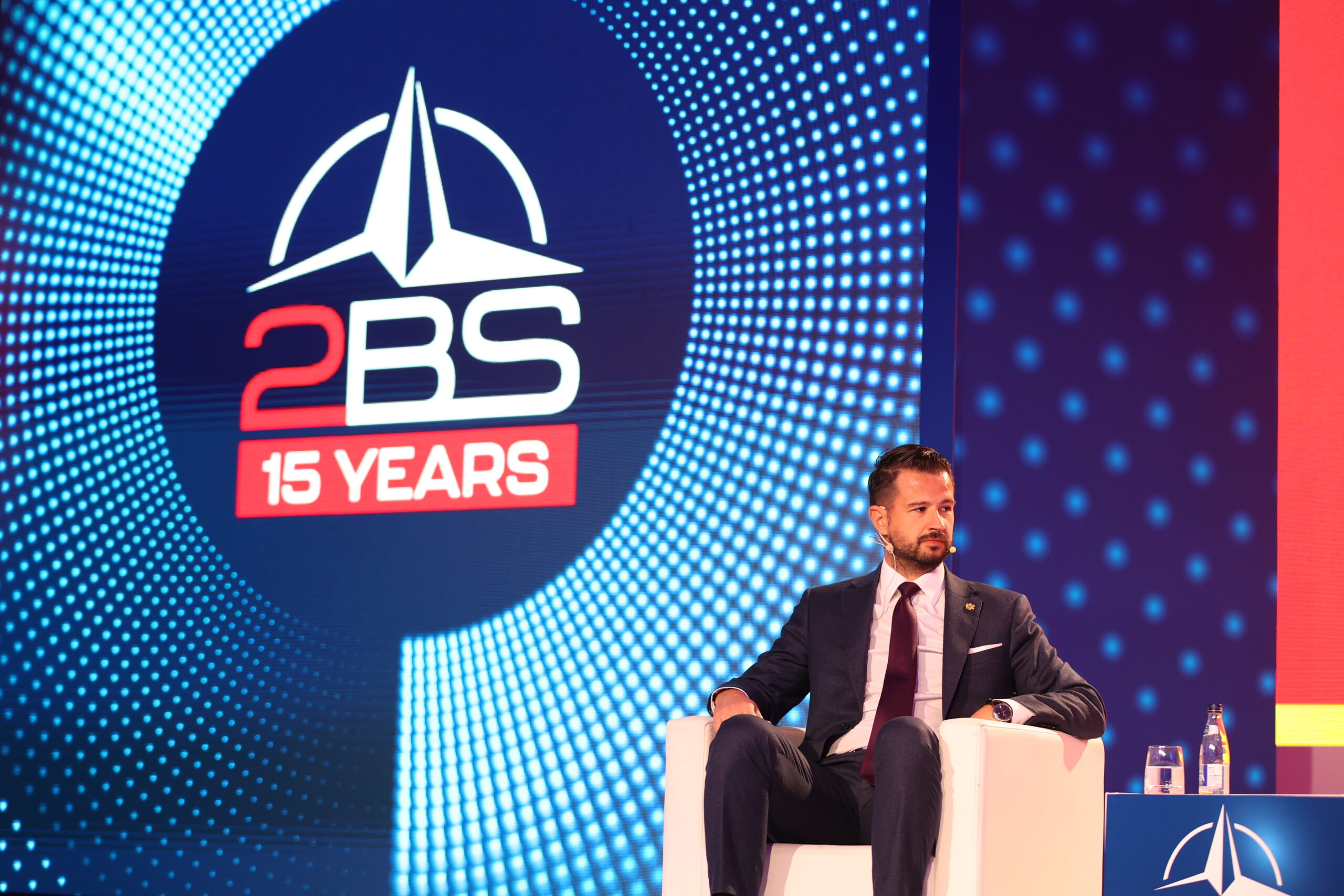The actions of some parts of the Montenegrin Government are not always aligned with the reform process required for European Union accession, said President Jakov Milatović, emphasizing that words and actions need to be more consistent. Speaking at the To Be Secure Forum in Budva, he stated that it is up to Montenegro to move more intensively through the final steps of the accession process, and that the focus should be on reforms.
Milatović recalled that Montenegro has opened all negotiation chapters with the EU and closed seven, adding that he believes several more will be closed by the end of the year. Highlighting the key goal of Montenegro becoming a member of the Union by 2028, Milatović said a new wave of energy can be felt across the EU.
“It is up to us to move more intensively through these final steps,” said Milatović. He reminded that the adoption of IBAR (the Interim Benchmark Assessment Report) was a confirmation that the country had made sufficient progress in the rule of law, enabling advancement in other chapters as well.
According to Milatović, an important step last year was the consolidation of judicial institutions and achieving a parliamentary majority for key appointments in the judiciary. He said this was a fact that allowed the country to move forward.
He acknowledged that while Montenegro continued closing chapters last year, the pace is still not sufficient and should be increased.
“That is why I always call on all political actors in the country, and it is clear that the greater responsibility lies with those in power, to fully focus and direct their energy toward the EU accession process,” said Milatović.
He emphasized that EU accession is not a goal in itself, adding that membership in the Union is “an anchor that drives the state forward and reminds it of the importance of reforms.” Milatović stressed that membership in the Union is something pursued for the benefit of citizens, the rule of law, and quality of life.
Asked whether the current Montenegrin Government is fully aligned with European values, Milatović said that the formulations are aligned.
“I believe the words coming from the Government are good, but the actions of some parts of the Government are not always aligned with the EU reform process. Actions need to be more consistent with words,” Milatović stated. He emphasized that more focus should be placed on reforms, not just on statements about membership and accession.
“When I speak about the EU, I always speak about reforms in terms of the economy, the rule of law, and institutions,” Milatović said, adding that he would like to see more concrete actions in those areas.
He noted that Montenegro still lacks a functional Constitutional Court, a Law on the Government, and a Law on Parliament. “We still have a Government and a parliamentary majority that want to control institutions,” said Milatović. He added that they are often dissatisfied with what he says because they want to control the Presidency.
“They want to control the President, the media, the Central Bank,” said Milatović. He pointed out that the way the current Government operates is similar to the way previous regimes functioned.
Commenting on public support for EU membership, Milatović said that is why he constantly reminds political actors to stay focused on the accession process. “Because that is what our citizens expect.”
According to him, joining the EU is a visionary decision by leaders to invest in the stability and prosperity of the European continent. He said the same was true during previous rounds of EU enlargement, when the Union’s leaders decided to invest in stability and prosperity. Milatović said Montenegro should be seen as a model in the enlargement process and a demonstration that reforms pay off.
Speaking on the importance of NATO membership, he said it is definitely the most effective way for Montenegro to ensure a strong security framework.
“If you compare Montenegro’s military spending to that of some neighboring countries pursuing a neutral foreign policy, they pay more than we do,” said Milatović. He stated that he advocates for multilateralism and a rules-based international order.
“We should not blame the United Nations for the actions of its member states, which are not always aligned with its principles,” said Milatović. He stressed that in order to improve the UN, every member must contribute.
“I believe the world without the UN would be a worse place for all of us. The current state is not perfect, but we must all work to make it better,” Milatović concluded.
